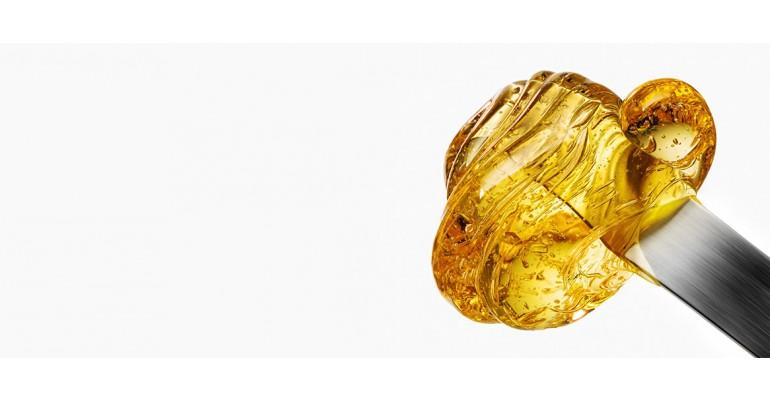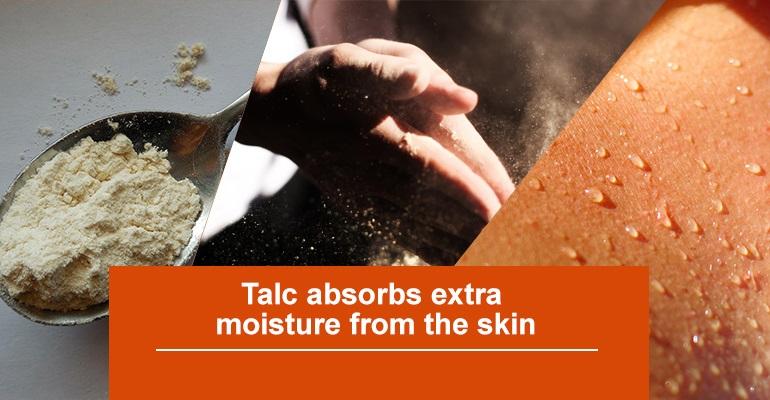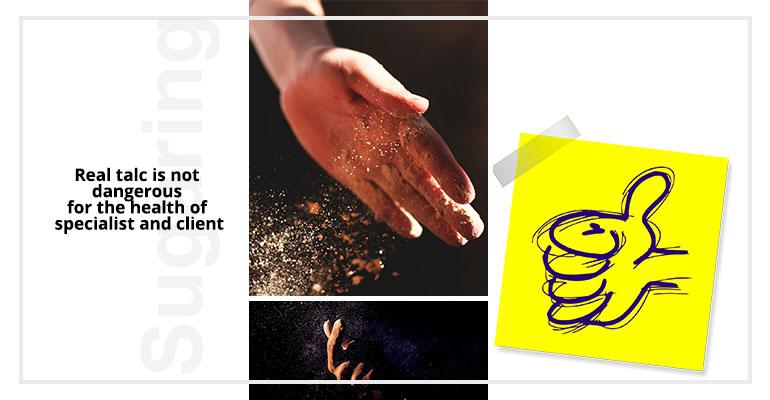
Talc for sugaring: safe or harmful?
Recently you may be finding many contradictory articles, where talc is described as either the only right and neutral base for various cosmetic products, or is proclaimed to be a "forbidden" ingredient. Let's try to figure out what's really going on.
What do you need talc for?
Without a doubt, talcum powder is a very important sugaring accessory. Here is why: talc absorbs all the extra moisture from the skin surface, helping the sugaring process a lot. Talc is almost a must-have for every professional. About other accessories more: https://sugaringfactory.com/blog-of-sugaring-factory/5-accessories-for-sugaring-at-home-and-at-the-salon.

The problem is that some specialists, trying to save money and increase profits, will not even buy talc. For example, the cheapest product that is available on the market is baby powder. In other words, this product has nothing in common with talc.
Where is the truth?
Talc is absolutely inert to the sugar paste. However, we should remember to not overuse talc, because it can reduce the number of times you can use each amount of sugaring https://sugaringfactory.com/ paste (it clogs it). But all of this is only true if we talk about talc, or in other words, grounded minerals.
Not all of the talc you find on the market is genuine. Very often, they are talc derivatives or analogs, without "GMO", "colorants" or other "additives". This "talc" often starts to oxidize right on the client's skin during the procedure. Starch or flour begin to swell, absorbing water, and making further sugaring impossible. The rest of "modern talcs" made from "mysterious ingredients" don't act any better. So it means that those products are not inert to paste and sweat. In this case, should we even be talking about a quality epilation?
What should we do if "talc" is not talc?
There are two options: buy a well-trusted product (real talc), or check the ingredients of the cheap analogs you are buying.
For example, talc can be tested by iodine. If the iodine drops turn blue, that means there is a starch in the product. If you add water to this starch flour mixture, you will get dough – absolutely useless as a sugaring substance. To test it on oxides, magnesium, or other chemicals for health and safety purposes, it will be much more difficult, requiring experts and costing much more than the "talc" itself.
Terms of use
If you purchased talc, you shouldn't forget about some rules:
- Don't use too much talc. It can quickly clog the paste and make it ineffective. You will have to apply a new dose of paste.
- Spread the talc evenly on the surface, as a thin layer against the hair growth.
Is talc harmful to the health of the specialist?
There are rumors among the estheticians that talc dust in the air can cause some diseases. In reality, health problems caused by talc (even if the talc is really talc) is a myth. Let's see why.
It is possible to get sick from talc dust flying in the air only if you work at the factory, where they use a large quantity of talc mixed with, for example, asbestos. Inhaling those substances on an everyday basis can be really harmful to your health.

The cosmetic talc which is used in soaps, emulsions, and in the huge line of cosmetic products (you may not even suspect) has no harmful additives. Natural talc is made from grounded minerals, and it is perfect for cosmetic production because of its inert properties. But if you are still nervous even without our explanations, then it makes sense to use a mask during your work with talc.
Conclusions
Talc is absolutely inert. This is the exact reason why it is perfect for sugaring. It doesn't clog pores, despite the fact that it's a powder. The most interesting fact is that you have no idea how often you actually use it: soaps, shampoos, eyeshadows, lipsticks, and other cosmetic products; also medicines and different types of supplements. Talc is not dangerous for your health, and it has been proven by dozens of years of use.


 Cart
Cart 